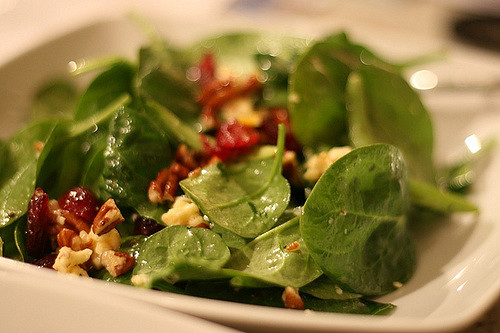Summertime brings warm weather, no school, vacations, beach parties, and food — lots and lots of summer foods. It’s ice cream and barbecue weather. However, while many of these summer foods might sabotage a healthy diet and a healthy planet, there are simple alternatives that help provide a more balanced diet!
Organic, grass-fed meats for CAFO Meats
Maybe you want a hamburger patty for your picnic. Or maybe you’re just trying to get some protein in your lunch. Substituting grass-fed, organic meats for confined animal meat could greatly improve the nutritional value of your meal. By now, most people have heard that organic, grass-fed meats have an advantage over meat from animals kept in captivity. Researchers from the USDA and Clemson University found that these advantages, possibly stemming from the difference in the nutritional quality of the animal’s diets, lead to a better fatty acid composition and more antioxidants and omega-3 fats in the meat from these animals. Animals kept in confinement tend to have more of the type of saturated fatty acids that can raise cholesterol, while animals allowed to feed on grass tend to have more of the type of saturated fatty acids that do not affect cholesterol.
Image Source: Lew Robertson
Butter for margarine
Margarine, once thought as a healthier substitute for butter, is now shunned for the health risks it creates. The trans fats, free radicals, emulsifiers, and preservatives used in the process of making margarine all contribute to the negative effects of the butter substitute. They raise bad cholesterol levels, lower good cholesterol levels, and increase the risk of heart problems. Butter, while rich in fats, also includes beneficial conjugated linoleic acids (fatty acids thought to prevent cancer) and vitamins A, D, E and K2.
Spinach for lettuce
Summer salads are another opportunity for incorporating vitamins and other nutrients into a meal. For example, spinach, in addition to containing fiber that helps in digestion, also has nutrients like Vitamin A, C, and B-6; folate (which aids in brain health); riboflavin (which stimulates growth and red blood cell production); thiamin and niacin (which aid in the metabolism of carbohydrates and amino acids); and minerals that help brain, heart, nerve, and bone health. By substituting spinach for the blander and less nutritional iceberg lettuce, a simple salad can provide essential nutrients.
Beans and whole grains for white rice
Like spinach, beans and whole grains have vitamins, minerals, and fiber that could improve the health benefits of a meal. The fiber they provide also makes it easier to feel full with a smaller portion than would be required with white rice.
Filtered water for bottled water
Is there a difference? According to Scientific American, filtered tap water proves to be not only more environmentally friendly, but also less expensive and safer for people to drink. Every year, 17 million barrels of petroleum are used to make the bottled water that Americans consume, reported the Earth Policy Institute. Additionally, people still do not recycle 86% of the bottles, according to the Container Recycling Institute. Packaging, labelling, shopping, and profits inflate the cost of bottled water to 1,900 times the price of the equivalent tap water. Perhaps most significantly, the U.S. government does not hold water put into bottles to guidelines as strict as those that tap water is held to. In the end, filtered tap water might actually provide the cleanest, most energy efficient way to drink water.
Summertime might mean more tempting foods, but with simple swaps, delicious meals can still be made with healthy alternatives!
Feature Image Source: Baby Spinach Salad by MellowFood










